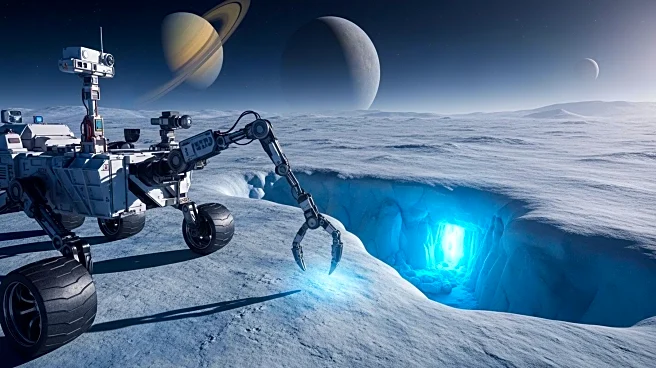What's Happening?
NASA is considering a mission to Saturn's moon Enceladus, which may harbor extraterrestrial life. The Cassini probe previously detected organic molecules in Enceladus' water plumes, suggesting a warm ocean beneath its icy surface. The European Space Agency has proposed a mission to Enceladus, but it is not scheduled to launch until 2042. NASA is exploring the possibility of launching an 'Enceladus Orbilander' mission in 2038, leveraging advanced technologies like SpaceX's Starship and direct fusion drives to reduce travel time to Saturn.
Why It's Important?
The potential discovery of life on Enceladus could revolutionize our understanding of life beyond Earth. Unlike Mars, Enceladus offers a more hospitable environment due to its warm ocean, making it a prime target for astrobiologists. The mission could also advance space technology, with implications for future deep space exploration. The U.S. could gain a strategic advantage in space exploration by leading this mission, fostering scientific and technological development.
What's Next?
NASA's proposed mission to Enceladus could launch in 2038, utilizing SpaceX's Starship and direct fusion drives to expedite travel. The mission would involve an orbiter and a lander, powered by radioisotope thermoelectric generators. The success of this mission could pave the way for further exploration of icy moons like Europa, potentially leading to groundbreaking discoveries in astrobiology.
Beyond the Headlines
Exploring Enceladus could avoid conflicts between human spaceflight and scientific exploration, as the moon is not a target for human settlement. This focus on robotic exploration could ensure the preservation of potential alien ecosystems, avoiding contamination by human microbes.









